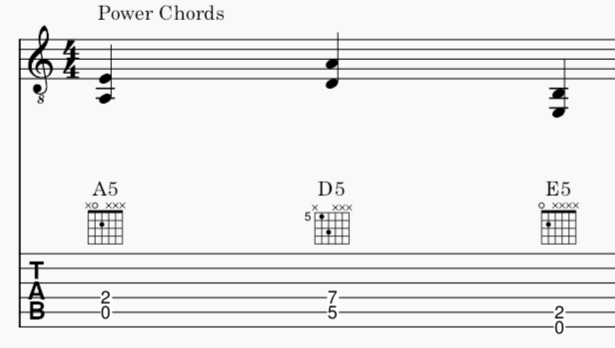Why Improvising On Guitar Is So Difficult (& How To Make It Easier!)
Nov 16, 2024Have you ever been awestruck when seeing one of your guitar heroes just shredding away?
I’m not talking about a recorded, composed solo on a song that's played live every night. I'm talking about those next-level shredders that seem to have amazing leads pouring out of their fingertips on the spot. Ever wonder how they're able to do it so easily, yet feel frustrated when you don't come anywhere close when trying it yourself? That key skill is improvising, which is when you play music without preparation--or so it seems.
The secret is that the best improvisers tend to have had the most preparation before laying down an off-the-cuff solo. The road to being a great improviser can be complicated, but I've put together the main considerations you need to keep in mind to narrow your focus.
Chords. Lots of Chords.
Before you can solo and improvise in its greatest sense, you first have to understand chords. A lot of players wanna just start shredding and don't care for those cowboy campfire chords. The problem with that is that chords are arguably the most important part of improvising. Familiarizing yourself with different chords can take a long time. Between open chords, barre chords, power chords, triads, 7th chords, and all their names and variations, guitarists have a LOT to keep track of.
Not only do we have to know the chords, but we have to know the notes that form the chords. As if things weren't already overwhelming, we also have to know intervals which are the distances between notes. Intervals are important to know since they evoke different emotions and ranges of tension.
Lastly, in an improv situation, you have to understand how the chords are structured in time, which is referred to as the chord progression. There are many common formulaic chord progressions, like the I-IV-V progression in popular music or the ii-V-I progression in jazz.
Scales. Lots Of Scales.
Just as there are many chords to keep track of, there are also many different scales. Between major scales, minor scales, pentatonic scales, diatonic scales, modes, and exotic scales, there is a lot to keep track of. Knowing how to use the scales alone is one thing, but pairing that knowledge with chords can add to the overwhelm.
I like to look at scales as almost being based on chords. How you apply scales to the chords can vary in complexity. You can rely on one scale for the whole progression, or vary your scale choice between or within chords.
Expand your lick library so that way you'll have different phrases to pluck at a moment's notice. Doing so prevents players from simply running up and down scales, and instead encourages musical improvising. Be sure that you consider the chords, key, and tempo of whatever you are playing your licks over.
Let's Simplify Things
If you've got control over your backing arrangement, I'd recommend soloing over a power chord progression. Power chords are easier to solo over because they don't hold you to specific scales. There are only two notes in power chords: the root and the 5th. In the example I made, I use the power chords A, D, and E.

Next, identify the appropriate scale(s) for your chord progression. If possible, start with one scale at first before branching out to others. In a i-iv-v power chord progression, we can pull from the pentatonic scale. The cool thing about the pentatonic scale is that it can be played over all three chords in this progression. In addition, having a lick library will help to pull ideas from. In the example I made, I use the A minor pentatonic scale since it fits especially well in the A, D, and E power chord progression.

Identify critical notes you can safely land on while sounding good. In this example, you can start by relying on the root note (A). This note fits in 2 of our 3 existing chords (the root of i chord and the 5th of iv chord). You can then branch out by landing on the root notes of each chord (A, D, and E) as they occur in the progression.
Conclusion
Improvising is no easy task, but by being mindful of the challenges and the ways those challenges can be overcome, you'll make the process a lot easier for yourself. This will help a lot if you ever wanna jam with other players. Having prepared for a spontaneous jam sesh, you'll feel more confident which will allow you to play in line with the other musicians.
These improvising skills can also help a lot if you just want to play over pre-recorded jam tracks, or even if you're having writer's block and want to expand your creativity. Gradually work on your understanding of chords and chord progressions, then scales and licks, one step at a time. Improvising doesn't have to be super complicated right away. You can simply start small and add more skills as you pick them up.
Watch the full lesson here: Why Improvising On Guitar Is So Difficult (& How To Make It Easier!)
Optimize your practice routine in 5 minutes with my simple, powerful, scientifically driven tool for guitarists.


